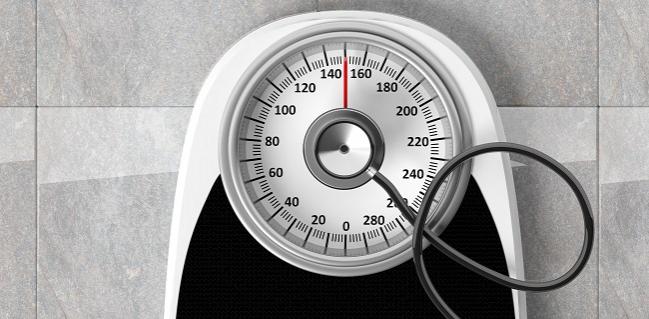Bariatric Surgery Tied to Less A-fib Recurrence After Ablation
It’s reasonable to offer bariatric surgery to morbidly obese patients before ablation, but randomized trials are needed, one expert says.

SAN FRANCISCO, CA—A-fib ablation may be more successful in morbidly obese patients who first undergo bariatric surgery, a retrospective study suggests.
Recurrence of the arrhythmia an average of 3 years after ablation was significantly lower in the patients who initially had weight loss surgery (20% vs 61%; HR 0.14; 95% CI 0.05-0.39), Eoin Donnellan, MD (Cleveland Clinic, OH), reported at the Heart Rhythm Society 2019 Scientific Sessions here last week.
Bariatric surgery remained associated with less A-fib recurrence even after adjustment for weight loss and glycemic control, “so there are likely other factors at play,” said Donnellan, who concluded that “bariatric surgery should at least be considered in these patients prior to undertaking ablation.”
Obesity is an independent risk factor for A-fib, contributing to arrhythmia burden through a variety of pathways, including sleep apnea, hypertension, LV hypertrophy, left atrial remodeling, insulin resistance, and others, Donnellan noted. Bariatric surgery has been shown to mitigate several of these factors.
Donnellan and his colleagues explored the potential impact of bariatric surgery on the success of A-fib ablation by performing a retrospective analysis of data on 239 patients with morbid obesity—body mass index (BMI) 40 kg/m2 or more—who were referred for ablation at the Cleveland Clinic; 21% underwent bariatric surgery before the procedure and the rest were enrolled in medical weight management clinics.
At the initial visit with the electrophysiologist, average BMI was higher in the patients who went on to have bariatric surgery (47.6 vs 43.0 kg/m2). By the time of ablation, however, BMI had fallen to 36.8 kg/m2 in the surgery group and had remained relatively unchanged in the rest of the patients (42.3 kg/m2; P < 0.01 for between-group difference). HbA1c also improved to a greater extent between the initial evaluation and ablation in the surgery group.
Prior to ablation, 61% of patients who had undergone bariatric surgery and 75% of the remaining patients had persistent A-fib. It’s worth noting, Donnellan said, that 22% of patients in the surgery group had a reversal of A-fib from persistent to paroxysmal before the procedure.
The primary outcome of interest was arrhythmia recurrence—defined as an atrial arrhythmia episode lasting for at least 30 seconds beyond the 3-month blanking period. Bariatric surgery was the only factor associated with a lower risk of recurrence, even after adjusting for the inverse probability of the propensity score, whereas a higher HbA1c at the time of ablation was associated with a higher recurrence risk.
Repeat cardioversion or ablation was less frequent in the patients who had weight loss surgery (12% vs 41%; P < 0.0001).
Commenting for TCTMD, Carl “Chip” Lavie, MD (John Ochsner Heart and Vascular Institute, New Orleans, LA), noted that prior research has shown that achieving weight loss—particularly more than 10% of body weight—and improved fitness through diet and exercise markedly reduced A-fib recurrences.
“This study, which is not randomized so associated with substantial treatment bias, suggests that bariatric surgery, which is generally associated with much better weight reduction, is also associated with much better success of catheter AF ablation,” Lavie said in an email.
Offering bariatric surgery to morbidly obese patients before A-fib ablation “is very reasonable,” Lavie said, “but considering the cost of bariatric surgery, many will demand a prospective randomized trial. Also, one could make the case that diet and exercise training could potentially produce similar results, although this may be more feasible for mild-moderate obesity as opposed to more severe, morbid obesity.”
The bottom line, Lavie said, is that “very marked weight loss with bariatric surgery appears to markedly improve AF success after ablation, but prospective, randomized trials are needed to further assess this.”
Todd Neale is the Associate News Editor for TCTMD and a Senior Medical Journalist. He got his start in journalism at …
Read Full BioSources
Donnellan E. Marked reduction in recurrence rates following bariatric surgery in morbidly obese patients undergoing atrial fibrillation ablation. Presented at: HRS 2019. May 10, 2019. San Francisco, CA.
Disclosures
- Donnellan and Lavie report no relevant conflicts of interest.


Comments